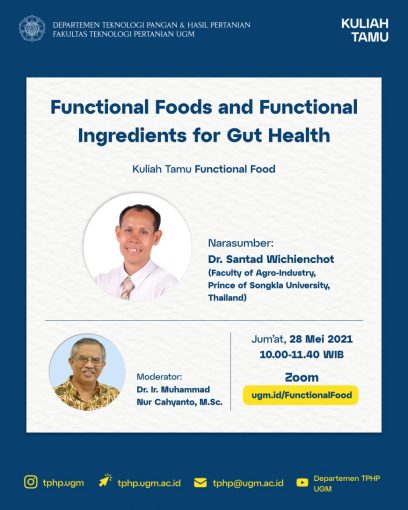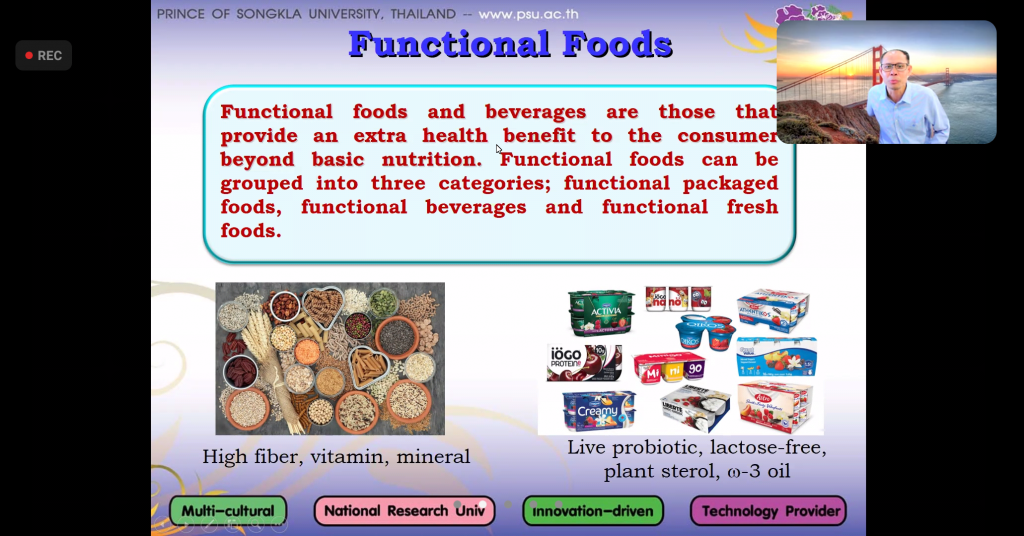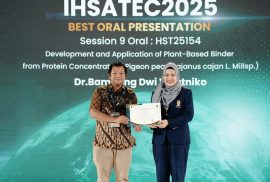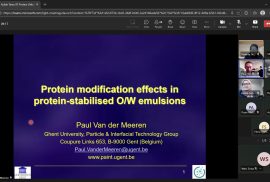
The Department of Food Technology and Agricultural Products UGM held a guest lecture on Friday, May 28, 2021, at 10:00 – 11:15 WIB. This guest lecture carries the topic of Functional Foods and Functional Ingredients for Gut Health with the speaker, Dr. Santad Wichienchot from the Faculty of Agro-Industry, Prince of Songkla University, Thailand, and hosted by Dr. Ir. Muhammad Nur Cahyanto, M.Sc. as moderator. This guest lecture was conducted through the Zoom platform and attended by 25 participants.

Functional food is food and food ingredients that provide additional benefits in addition to the basic nutritional function of the food in a particular community group. Functional foods can be divided into three groups, namely packaged functional foods, functional beverages, and fresh functional foods.
Functional ingredients are bioactive compounds that can be used in the manufacture of functional food products. These bioactive compounds can be obtained from various sources, such as agribusiness products, marine products, microorganisms, and inorganic raw materials. Examples of carbohydrate sources that can be utilized as functional foods are a β-glucan, resistant starch, konjac glucomannan, seed polysaccharides gums, microbial polysaccharides, chitosan, arabinoxylan, and prebiotics.
Probiotics are live microorganisms that, when administered in adequate amounts, can have a beneficial or health effect on other organisms/hosts. Microorganisms utilized for probiotics include Lactobacillus sp., Bifidobacterium sp., Streptococcus thermophiles, Lactococcus lactis, Bacillus cereus, Saccharomyces cerevisiae, and others.
Postbiotics are preparations of dead microorganisms and/or their components that provide health effects on their hosts. Meanwhile, prebiotics are food ingredients that function as an intake for good bacteria in the human body so that the amount is maintained. The benefits of prebiotics include inhibiting pathogens, relieving constipation, increasing mineral absorption, stimulating the immune system, vitamin synthesis, short-chain fatty acid production, reducing the risk of colon cancer, lowering blood cholesterol and fat, and losing weight.
Meanwhile, synbiotics are foods that simultaneously have probiotic and prebiotic components, or can be interpreted as a combination of probiotics and prebiotics. For example, oligosaccharide fermentation in the colon produces several physiological effects that increase the population of Bifidobacteria in the colon.




